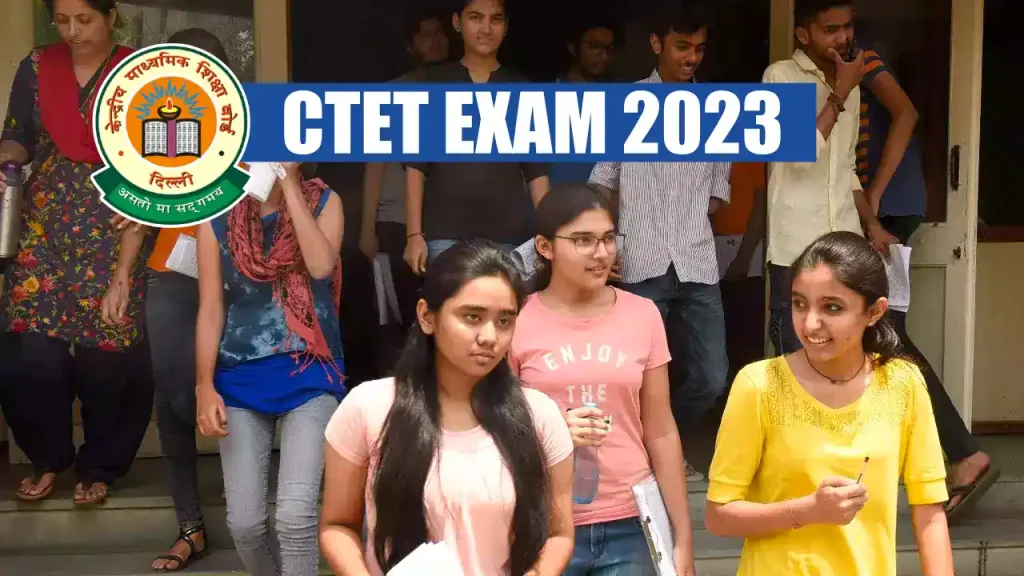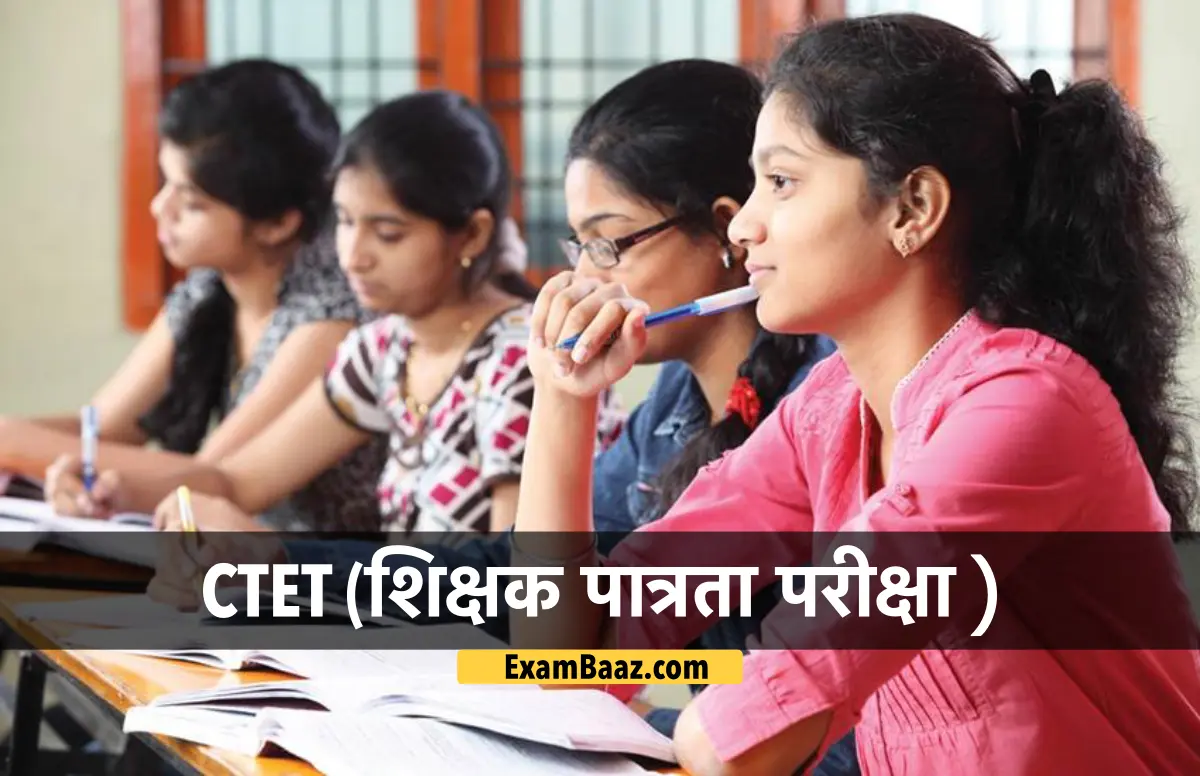MCQ on Vygotsky Chomaski Jean Piaget Theory: केंद्रीय माध्यमिक शिक्षा बोर्ड द्वारा केंद्रीय शिक्षक पात्रता परीक्षा के 17वे संस्करण का आयोजन जुलाई-अगस्त माह मे किया जाएगा। परीक्षा के लिए रजिस्ट्रेशन प्रक्रिया 26 मई को पूरी हो चुकी है शिक्षक बनने की चाह रखने वाले लाखों अभ्यर्थियों ने सीटेट परीक्षा के लिए आवेदन किया है तथा अब वे परीक्षा तिथि जारी होने का इंतजार कर रहे हैं यदि आप भी इस परीक्षा में शामिल होने जा रहे हैं तो इस आर्टिकल में दी गई जानकारी आपके लिए बहुत महत्वपूर्ण है।
आपको बता दें कि सीटेट परीक्षा का आयोजन केंद्र सरकार द्वारा संचालित केंद्रीय विद्यालय नवोदय विद्यालय तथा आर्मी पब्लिक स्कूल में होने वाली शिक्षक भर्ती परीक्षाओं के लिए अभ्यर्थियों की पात्रता सुनिश्चित करने के लिए किया जाता है। सीटेट परीक्षा में दो पेपर आयोजित होते हैं ऐसे व्यक्ति जो कक्षा 1 से 5 के शिक्षक बनना चाहते हैं उन्हें पेपर वन जबकि कक्षा 6 से 8 के शिक्षक बनने के लिए पेपर 2 पास करना होता है
यदि आप इस पात्रता परीक्षा में शामिल होने वाले हैं तो यहां दी गई जानकारी के लिए काम की है, यहां हम बाल विकास और शिक्षाशास्त्र के अंतर्गत कोहल वर्ग, वाइगोत्सकी, जीन पियाजे और चोम्स्की के सिद्धांतों पर आधारित ऐसे सवालों (MCQ on Vygotsky, Chomaski, Jean Piaget Theory) को लेकर आए हैं जो विगत वर्षों में पूछे जा चुके हैं परीक्षा से पूर्व उन्हें एक बार अवश्य पढ़ें.
मनोवैज्ञानिकों के सिद्धांतों से सीटेट के पिछले वर्षों में पूछे गए सवाल, यहां पढ़ें—CTET vygotsky, chomaski Jean piaget kohlberg theory practice MCQ

Q. वाइगोत्सकी के सिद्धांत में, विकास के निम्नलिखित में से कौन-से पहलू की उपेक्षा होती है / In Vygotsky’s theory, which of the following aspects of development is neglected?
a) सामाजिक / Social
(b) सांस्कृतिक / Cultural
(c) जैविक / Biological
(d) भाषायी / Linguistic
Ans- c
Q. निम्नलिखित में कौन-सी संज्ञानात्मक क्रिया दी गई सूचना के विष्लेषण के लिए प्रयोग में लाई जाती हैं / Which of the following cognitive verbs are used to analyze the information given?
(a) पहचान करना / Identify
(b) अंतर करना / Differentiate
(c) वर्गीकृत करना / Classify
(d) वर्णन करना / Describe
Ans- b
Q. लॉरेंस कोहलबर्ग के द्वारा प्रस्तावित निम्नलिखित चरणों में से प्राथमिक विद्यालयों के बच्चे किन चरणों का अनुसरण करते हैं ? / Children in primary schools follow which of the following stages as proposed by Lawrence Kohlberg
1. आज्ञापालन और दण्ड- उन्मुखीकरण / Obedience and Punishment Orientation
2. वैयक्तिकता और विनियम / Individual and Exchange
3. अच्छे अंत: वैयक्तिक सम्बन्ध / Good Interpersonal Relationships
4. सामाजिक अनुबंध और व्यक्तिगत अधिकार / Social Contract and Individual Rights
(a) 1 and 4
(b) 1 and 3
(c) 2 and 1
(d) 2 and 4
Ans- c
Q. सीता ने हाथ से दाल और चावल खाना सीख लिया है। जब उसे दाल और चावल दिए जाते है तो वह दाल-चावल मिलाकर खाने लगती है। उसने चीजों को करने के लिए अपने स्कीमा में दाल और चावल खाने को…….कर लिया हैं। / Sita has learned to ear rice and dal with her hand. When she is given dal and rice, she mixes rice and dal and starts eating. She has_________ eating rice and dal into her scheme for doing things.
(a) समायोजित / Accommodated
(b) आत्मसात्करण / Assimilated
(c) समुचिंतता / Appropriated
(d) अंगीकार / Initiated
Ans- b
Q. निम्नलिखित में से कौन-सा वाइगोत्सकी के सामाजिक- सांस्कृति सिद्धांत पर आधारित हैं / Which of the following is based on Vygotsky’s social cultural theory ?
(a) सक्रिय अनुकूलन / Operant, conditioning
(b) पारस्परिक षिक्षण / Reciprocal teaching
(c) संस्कृतिक-निरपेक्ष संज्ञानात्मक विकास / Culture-neutral
(d) अन्तर्दृष्टिपूर्ण अधिगम / Insight learning
Ans- b
Q. करनैल सिंह कानूनी कार्यवाही तथा खर्च के बावजूद आयकर नहीं देते। वे सोचते है कि वे एक भ्रष्ट सरकार को समर्थन नहीं दे सकते जो अनावष्यक बाँधों के निर्माण पर लाखों रूपये खर्च करती है वे संभवतः कोहलवर्ग के नैतिक विकास की किस अवस्था में है / Karnail Singh does not pay income tax despite legal procedures and expenses. He thinks that he cannot support a corrupt government which spends millions of rupees in building unnecessary dams. He is probably in which state of Kohlberg’s stages of moral development.
(a) परंपरागत / Conventional
(b) पश्च-परंपरागत / Post Conventional
(c) पूर्व-परंपरागत / Pre Conventional
(d) परा-परंपरागत / Para conventional
Ans- b
Q. एक षिक्षिका अपनी कक्षा से कहती हैं, “सभी प्रकार के प्रदत्त कार्यों का निर्माण इस प्रकार किया गया है कि प्रत्येक विद्यार्थी अधिक प्रभावषाली ढंग से सीख सके, अतः सभी विद्यार्थी बिना किसी अन्य की सहायता से अपना कार्य पूर्ण करें। वह कोहलवर्ग के किस नैतिक विकास के चरण की ओर संकेत दे रही है / A teacher says to her class, “As individual assignments are designed to help individual students learn more effectively, all students should complete assignments prescribed without any assistance.” She is referring to which of the following stages of Kohlberg’s moral development ?
(a) औपचारिक चरण 4- कानून और व्यवस्था / Conventional stage4- law and order
(b) पर औपचारिक 5- सामाजिक संविदा / Post-conventional stage 5- social contract
(c) पूर्व-औपचारिक चरण 1- दण्ड परिर्वतन / Pre-conventional stage 1- punishment avoidance
(d) पूर्व-औपचारिक चरण 2- वैयक्तिकता और विनिमय / Pre-co-nventional stage 2-individualism and exchange
Ans- a
Q. एक चिक्षिका दो एक समान गिलासों को प्रदर्पित करती है जो जूस की समान मात्रा से भरे हुए हैं। वह उन्हें दो भिन्न गिलासों में खाली करती है जिनमें से एक लंबा है और दूसरा चौड़ा है वह बच्चों को उस गिलास की पहचान करने के लिए कहती है जिसमें जूस ज्यादा है। बच्चे प्रत्युत्तर देते है कि लंबे गिलास म जूस ज्यादा है। पिक्षिका के बच्चों को————- कठिनाई है। / A teacher shows two Identical glasses Tilled with an equal amount of juice in them. She empties them in two different glasses one of which is taller and the other one is wider. She asks her class to identify which glass would have more juice in it. Students reply that the taller glass has more juice. Her students have difficulty in dealing with
(a) समायोजन / Accommodation
(b) अहमकेंद्रिता / Egocentrism
(c) विकेंद्रीकरण / Decentring
(d) पलटावी / Reversibility
Ans- c
Q. संज्ञानात्मक प्रषिक्षुता तथा शैक्षिक संवाद । / Cognitive apprenticeships and instructional conversations
(a) अधिगम को एक सामाजिक गतिविधि के रूप में ग्रहण करते है। / Conceive learning as a social activity
(b) आगमनात्मक तार्किकता के अनुप्रयोग पर आधारित है। / Are based on application of inductive reasoning
(c) पाठ्यसामग्री के सुव्यवस्थित संगठन पर बल देते हैं / Emphasize on systematic organization of textual material
(d) कुपलता की प्राप्ति हेतु व्यावहारिक प्रषिक्षण की आवष्यकता पर बल देते है / Highlight the need of practical training to achieve efficiency
Ans- a
Q. एक शिक्षिका अपने पिक्षार्थियों की इस रूप में मदद करना चाहती है कि एक स्थिति की अनेक दृष्टिकोणों की सहारना कर सकें। वह विभिन्न समू में एक स्थिति पर वाद-विवाद करने के अनेक अवसर उपलब्ध कराती है| वाइगोत्स्की के परिप्रेक्ष्य के अनुसार उसके पिक्षार्थी विभिन्न दृष्टिकोणों को ———— करेंगे और अपनी तरीके से उस स्थिति के अनेक परिप्रेक्ष्य विकसित करेंगे। / A teacher wishes to help her students to appreciate multiple views of a situation. She provides her students multiple opportunities to debate on this situation in different groups. According to Vygotsky’s her students will ———- various views and develop multiple perspectives of the situations on their own.
(a) आत्मसात / Internalize
(b) निर्माण / Construct
(c) संक्रियाकरण / Operationalize
(d) तर्क संगत / Rationalize
Ans- a
Q. निम्नलिखित में से कौन-सा कोहलबर्ग के नैतिक विकास के चरणों का लक्षण हैं / Which of the following is a characteristic of Kohlberg’s stages of moral development ?
(a) चरणों का परिर्वतनषील अनुक्रम / Variable sequence of stages
(b) विभिन्न चरण अलग-अलग प्रत्युत्तर है न कि सामान्य प्रतिमान | / Stages are isolated responses and not general pattern
(c) सभी संस्कृतियों से संबंध चरणों की सार्वभौमिक श्रृखंला / Universal sequences of stages across all cultures
(d) विभिन्न चरण एक गैर-पदानुक्रम रूप में आगे की ओर बढ़ते हैं / Stages proceed in a non-hierarchic manner
Ans- c
Q. विकास के सिद्धांत से नहीं निकाला जा सकता? / Which of the following implications cannot be derived from Piaget’s theory of cognitive development?
(a) बच्चों की अधिगमनात्मक तत्परता के प्रति संवदेनपीलता / Sensitivity to children’s readiness
(b) वैयक्ति भेदों की स्वीकृति / Acceptance of individual differences
(c) खोजपूर्ण अधिगम / Discovery learning
(d) शाब्दिक षिक्षण की आवश्यकता / Need of verbal teaching निम्नलिखित में से कौन-सा निहितार्थ पियाजे के संज्ञानात्मक
Ans- d
Q. संज्ञानात्मक विकास निम्न में से किसे द्वारा समर्थित होता हैं ? / Cognitive development is support by –
(a) जितना संभव हो उतनी आवृति से संगत और सुनियोजित परीक्षाओं का आयोजन करना। / Conductive relevant and well-designed tests as frequently as possible
(b) उन गतिविधियों को प्रस्तुत करना जो पारंपरिक पद्धतियों को सुदृढ़ बनाती है। / Presenting activities that reinforce traditional methods
(c) एक समृद्ध और विविधतपपूर्ण वातावरण उपलब्ध कराना। / Providing a rich and varied environment
(d) सहयोगात्मक की अपेक्षा वैयक्तिक गतिविधियों पर अधिक न कदित करना। / Focusing more on individual activities in comparison to collaboration
Ans- c
Q. रिया कक्षा पिकनिक तय करने हेतु रिषभ से सहमत नहीं है। वह सोचती है कि बहुमत के अनुकूल बनाने के लिए नियमों का संषोधन किया जा सकता है। यह सहपाठी विरोध, पियाजे के अनुसार, निम्नलिखित में से किससे संबंधित हैं / Ria does not agree with Rishabh about setting up a class picnic. She thinks that the rules can be revised to suit the majority. This of peer disagreement, according to Piaget, refers to
(a) विषमांग नैतिकता / Heteronomous morality
(b) संज्ञानात्मक अपरिक्वता / Cognitive immaturity
(c) प्रतिक्रिया / Reaction
(d) सहयोग की नैतिकता / Morality of cooperation
Ans- d
Q. एक वर्ष तक के षिषु जब आँख, कान व हाथों से ‘सोचते’ हैं, तो निम्नलिखित में से कौन-सा स्तर शामिल होता हैं / Which of the following stages are involved when infants “THINK” with their eyes, ears and hands?
(a) मूर्त संक्रियात्मक स्तर / Concrete operational stage
(b) पूर्व-संक्रियात्मक स्तर / Pre-operational stage
(c) इंद्रिय गामक स्तर / Sensory motor stage
(d) अमूर्त संक्रियात्मक स्तर / Formal operational stage
Ans- c
आपके लिए अन्य महत्वपूर्ण पोस्ट-

